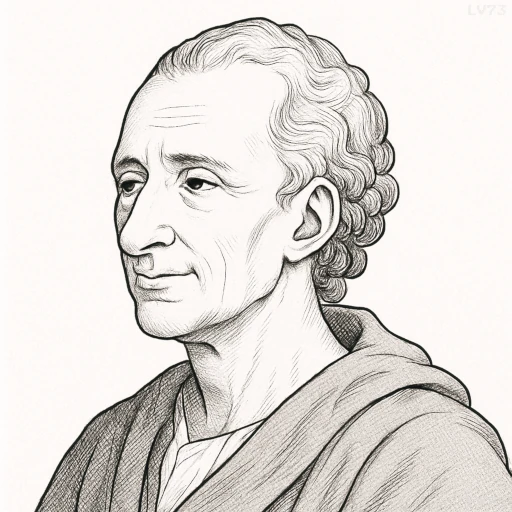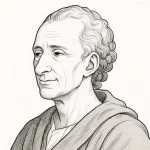“False happiness renders men stern and proud, and that happiness is never communicated. True happiness renders them kind and sensible, and that happiness is always shared. The tyranny of a prince in an oligarchy is not so dangerous to the public welfare as the apathy of a citizen in a democracy.”

- January 18, 1689 – February 10, 1755
- French
- Political Philosopher, Jurist, Author of The Spirit of the Laws
table of contents
Quote
“False happiness renders men stern and proud, and that happiness is never communicated. True happiness renders them kind and sensible, and that happiness is always shared. The tyranny of a prince in an oligarchy is not so dangerous to the public welfare as the apathy of a citizen in a democracy.”
Explanation
Montesquieu contrasts two kinds of happiness—false and true—not by how they feel internally, but by their effects on human character and society. False happiness, often rooted in vanity, wealth, or status, leads to arrogance and emotional isolation, as it is pursued for self-elevation and cannot be meaningfully shared. True happiness, by contrast, nurtures empathy and wisdom, and its very nature encourages connection, compassion, and mutual enrichment.
This moral observation transitions seamlessly into a political warning: the real danger to democracy is not always external tyranny but internal disengagement. Montesquieu provocatively suggests that even the oppressive rule of a prince in an oligarchy may be less harmful than the quiet decay caused by citizens who no longer care to participate in public life. His concern lies in the fact that democracy depends on the active involvement of its people, and when they become apathetic, the structure itself weakens, opening the door to corruption and decline.
In modern democracies, this insight is especially urgent. Low voter turnout, civic disengagement, and widespread cynicism can erode democratic institutions far more subtly than overt oppression. Montesquieu reminds us that true civic health is sustained not only by good laws but by citizens who are morally and emotionally invested in the common good—driven by true, shared happiness rather than hollow personal success.
Would you like to share your impressions or related stories about this quote in the comments section?



